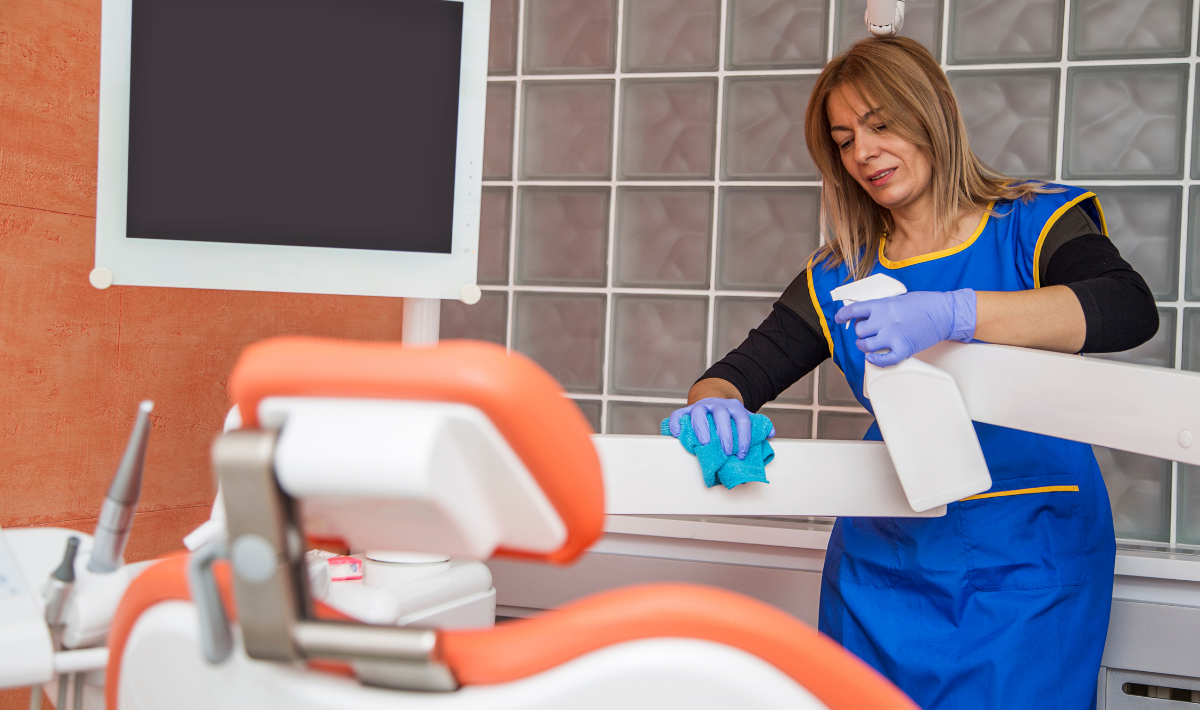By Dr. John Molinari and Peri Nelson
Editor’s Note: Efficiency In Group Practice is pleased to announce a new feature, Best Practices in Infection Control, with THE DENTAL ADVISOR. Dr. John Molinari and Peri Nelson will address common concerns related to Infection control in dental practices. Questions can be submitted at dentaladvisor.com, under the Ask The Editors tab.
Q: I work in a large, busy practice where more than 200 patients are seen per day. It is difficult to get everyone on the same page in terms of infection control policies and procedures. There are a lot of team members cutting corners because we are so busy. We don’t have a set system and this concerns me. What do you suggest?
A: Having a documented infection control program is critical for any practice, large or small. The key point is that all employees must adhere to clear guidelines that are written down, taught, and periodically reviewed as a team. When infection control procedures are improperly completed, it increases the risk of disease transmission. Have a meeting with personnel, discussing ways to complete tasks in an organized and efficient fashion, using products and equipment that work properly. If any confusion exists amongst team members, clarify as a group and periodically spot check that policies are being followed.
Q: Due to the volume of patients in our practice, I am washing my hands constantly and have developed small red bumps on my hands. Should I be concerned I am developing an allergy?
A: While it is possible that you have developed an allergy to the hand wash agent in your practice, it is more likely that the condition is a non-specific irritation dermatitis. This is not an allergic reaction. Instead, it is a gradual worsening skin condition which is caused by improper washing and/or care of hands. Repeated use of hand hygiene products can occur more than 20-25 times per work day in most healthcare facilities. When water-based soap or antibacterial products are used this can result in excessive removal of skin oils which are essential to keep epithelial tissues lubricated. Products that are too harsh or used inappropriately can cause some healthcare practitioners to experience the scenario you presented. Adoption of a mild, liquid soap (i.e. lotion-based soap) can be helpful in maintaining epithelial integrity. Water-based hand wash agents are not the only potential problem here, as early studies reported the drying effect of alcohol sanitizers. This problem has been resolved to a certain extent by the inclusion of emollients in these alcohol-based hand antiseptics. These specialized hand hygiene rubs are different from the products available at your local grocery store, so ask your sales rep for a list of acceptable options.
Dr. John Molinari and Peri Nelson train dental professionals worldwide on Infection control products and procedures. The course “What’s Bugging The Dentist?” is a popular hands-on, interactive program designed to assist in the selection, assessment, and use of infection control products in practice. Contact [email protected] to schedule your event.





